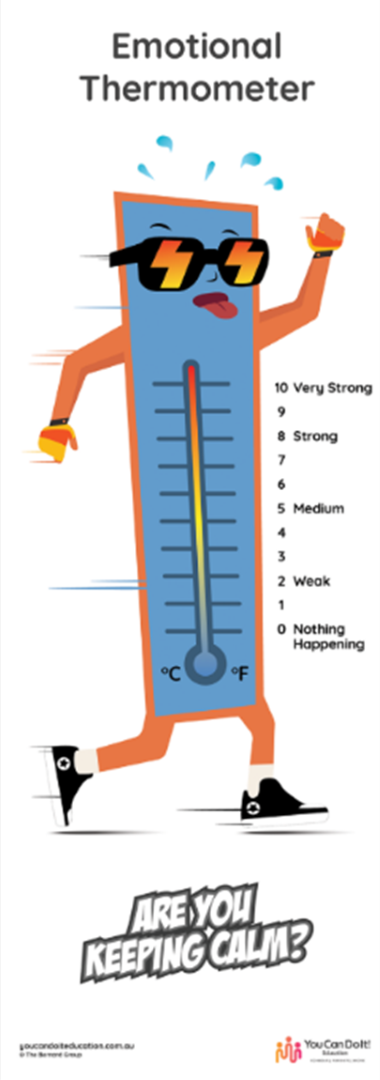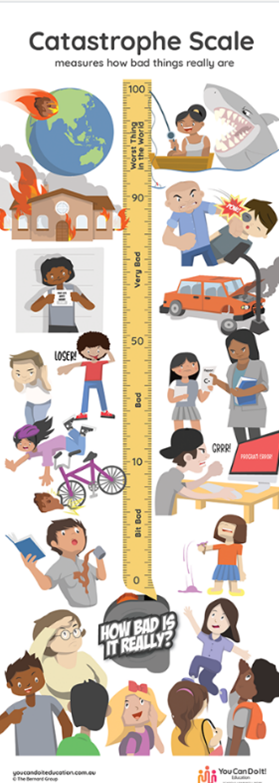Becoming Emotionally Resilient
Becoming Emotionally Resilient

 Emotional resilience is the ability to shape our interpretation of events and how we respond to them, as captured in William Shakespeare's famous quote "Things are neither good nor bad but thinking makes them so." While we cannot control the actions of others, we have control over our reactions. The You Can Do It program emphasises emotional resilience in children, teaching them to recognise how they can shape their encounters with events, words, and actions, leading to gratitude and a sense of belonging when relating to others.
Emotional resilience is the ability to shape our interpretation of events and how we respond to them, as captured in William Shakespeare's famous quote "Things are neither good nor bad but thinking makes them so." While we cannot control the actions of others, we have control over our reactions. The You Can Do It program emphasises emotional resilience in children, teaching them to recognise how they can shape their encounters with events, words, and actions, leading to gratitude and a sense of belonging when relating to others.
Research shows that by age 6-8, children have developed the ability to reason about demanding and threatening events. Children can promote helpful and healthy emotions and behaviours by thinking logically and drawing accurate conclusions and predictions, leading to emotional control and relief. The Emotional Thermometer and the Catastrophe Scale are two tools utilised as part of the You Can Do It Program that assist with emotional regulation. These visual cues help children identify the intensity of their emotions and understand the significance of events or actions. Physical and mental changes accompany changes in emotional states such as anger, anxiety, or happiness. Recognising these signs allows children to focus on their emotions and engage the rational component of their thought processes. These tools provide an alternative to pessimistic or irrational thinking and encourage more optimistic reasoning among our students.
Brendan, Head of Student Support
At this week’s Junior Assembly, we were fortunate to have Brendan, Head of Student Support, talk to the students about his role. As a “professional problem solver,” Brendan spoke of his responsibility across Years 3 to 5 as being a support for a range of situations that young people may encounter. From dealing with stress, and worries planning for academic success, Brendan spoke of a solution-focused mindset around the problems we encounter daily. We plan to have Brendan regularly contribute to Junior Assemblies to provide strategies and coping mechanisms for our younger students to enact. Brendan also explained the process for connecting with him one-on-one, and we would encourage parents and guardians to contact their child’s teacher for further information should you think your child would benefit from this connection.
Sport
This week and last have seen major sporting events held here at the College. Last Wednesday, the P-2 Athletics Carnival was enthusiastically attended by our Foundation College. There was great participation and house spirit, and we congratulate Bula House for their success on the day. It was well attended by many families, and we thank you for the support shown to all our students on the day.
Thursday was the first of our Gala Days for Semester Two, with students from Years 4-6 attending various venues around the coast and having the opportunity to play many other Independent Schools on the Sunshine Coast.
The opportunities provided through the College further enhance the experiences that our students grow through. The elements of our You Can Do It programs, such as resilience and persistence, were on show for all to see. We thank the P.E. staff and especially the Head of Junior Sport, Mr Darren Hooper and College sports aide, Mrs Lisa Muir, for preparing both days.
Take care and God Bless.
Mr Damian Davis, Head of Staff and Students P-5
